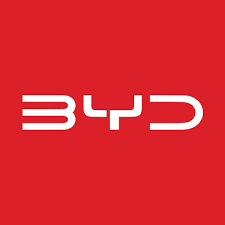A key advantage is BYD’s in-house Blade Battery (LFP) technology, known for safety and efficiency, which they also supply to other Indian manufacturers. Operating in India since 2007 with an electronic component manufacturing plant in Tamil Nadu, BYD leverages this existing infrastructure.
Facing competition from domestic and global players, BYD’s strategy involves competitive pricing on their imported vehicles and a commitment to covering a substantial portion of the Indian EV market. Navigating regulatory challenges while capitalizing on their technological strengths will be crucial for their long-term success in India’s evolving EV landscape.
Latest News on BYD INDIA
The BYD Seal 6 PHEV edges closer to Australian shores, poised to rival the Toyota Camry and Skoda Octavia.
The Chinese automotive giant BYD is expanding its model range in Australia, with the mid-size sedan and wagon, Seal 6, set to join the lineup. The Seal 6 has appeared in Australian Government approval documents, indicating its imminent launch. The vehicle will be available in four variants, including two sedans and two Touring wagons, all featuring plug-in hybrid power. The entry-level models will have a 70kW 1.5-litre engine and a 120kW electric motor, producing a total system output of 130kW, while the top-spec versions will have a more powerful 160kW electric motor and a larger battery, boosting total output to 163kW.
The Seal 6 will have a braked towing capacity of 750kg and will be available with either 17- or 18-inch wheels. While battery capacity is not specified in the documents, the UK version of the Seal 6 offers a choice of 10.08kWh and 19kWh lithium iron phosphate (LFP) batteries, with the latter supporting 26kW DC fast-charging. The Seal 6 sedan measures 4840mm long, 1875mm wide, and 1495mm tall, while the Seal 6 Touring wagon has the same length and width but is 10mm taller.
Inside, the Seal 6 features a 12.8-inch touchscreen infotainment system, an 8.8-inch digital instrument cluster, and available features such as heated and ventilated front seats, a heated steering wheel, panoramic sunroof, and wireless phone charger. The Seal 6 will have essentially no direct competition in Australia, positioning itself between smaller and larger vehicles in the market.
BYD already has a presence in the Australian market with its all-electric Seal sedan, but the Seal 6 will offer a wagon option and plug-in hybrid power. The brand is aggressively expanding its range in Australia, with the goal of becoming one of the top three automotive brands in the country this year, up from eighth place last year. The Seal 6 is part of a broader rollout of new vehicles, including the Atto 1 small EV and the plug-in hybrid Sealion 8 large SUV. With its growing range and competitive offerings, BYD is poised to make a significant impact in the Australian market.
Skoda’s Vision O concept offers a glimpse into an electric future for the Octavia estate
The Skoda Vision O concept has been unveiled, previewing an electric version of the Octavia wagon, known as the Octavia Combi. The concept car is a fully functional vehicle that can be driven at low speeds, and it showcases what an electric Octavia wagon could look like. The Octavia Combi has long been popular for its practicality, offering a spacious trunk and a comfortable driving experience. With the market shifting towards electric vehicles, Skoda is expected to launch an electric Octavia around 2028.
The electric Octavia will be built on the Volkswagen Group’s new SSP platform, which promises to bring new features, an 800-volt electrical system, and a roomier cabin. The SSP platform is a software-defined architecture that will enable the vehicle to have advanced functions and improved performance. The 800-volt system will allow for faster charging times, making it more convenient for owners.
The Skoda Vision O concept retains physical controls, which will be a welcome feature for many buyers. The concept car also showcases a more spacious cabin, thanks to the extra width provided by the SSP platform. The electric Octavia is expected to offer a range of benefits, including a larger trunk space, comfortable driving experience, and advanced charging technology.
The launch of the electric Octavia is crucial for Skoda, as the European market is becoming increasingly competitive with Chinese brands such as BYD and Geely offering well-equipped and affordable electric vehicles. Skoda needs to offer a compelling electric vehicle that meets the needs of mainstream customers, and the electric Octavia wagon could be the answer. By retaining the practicality and sensibility of the current Octavia Combi, while offering advanced technology and features, Skoda can attract customers who are looking for a reliable and spacious electric vehicle.
The Skoda Vision O concept is an important step towards the launch of the electric Octavia, and it provides a glimpse into what the future of the brand’s electric vehicles could look like. With its focus on practicality, comfort, and advanced technology, the electric Octavia wagon is expected to be a strong contender in the European electric vehicle market. The expected launch date of 2028 will give Skoda time to refine the vehicle and ensure that it meets the needs of its customers, and the brand is likely to face intense competition from other manufacturers in the coming years.
Recent Updates
No Results Found
The page you requested could not be found. Try refining your search, or use the navigation above to locate the post.
